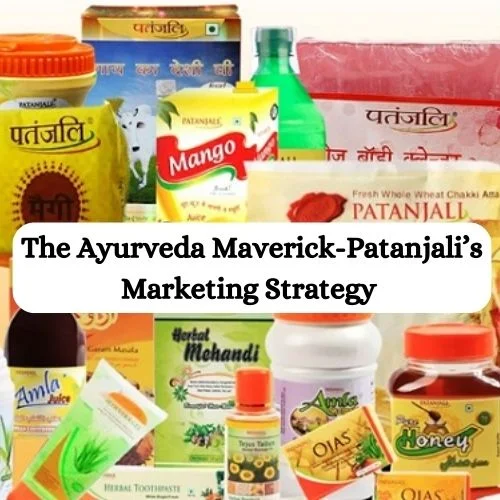Just like everything else from entertainment to office work, grocery shopping in India is also going digital, leading to intense competition among players with deep pockets, aiming to grab it all and become our favourite pados(online) ki dukan.
According to Industry experts, in years to come 1/4th of the organised grocery market’s growth could come from online shopping. So, for traditional modern trade players, this now means e-commerce is no longer an option. It’s now a necessity.
India’s online grocery battle has been heating up in last few years due Covid pandemic-related spike in demand, rising omni channel presence of offline retailers’ and most importantly the arrival of big conglomerate like the Tata group, Reliance Industries Limited (RIL), and Amazon etc. in e-grocery sector.
Country’s expanding Internet connectivity along with peoples’ increasing digital awareness and embracing of the convenience of delivery at their place are also an important factor in their switch to online grocery shopping.
The share of food & grocery retail in India rests at 65.9%, a significant and the largest chunk of the overall retail market in country, with a market size of $560 billion, according to a 2020 report by “Technopak Advisors” and makes up 15 to 20 % of India’s gross domestic product.
4 factors fueling growth in India’s e-grocery market:
- shift in consumers’ preference for e-commerce, driven by discounts, convenience and the array of product choices on their fing
- Entry of New players and unique business models, such as the entry of new players like JioMart. Modern retailers’ are betting on the omnichannel game to increase their profit and footprint, and consumer packaged goods companies are eyeing direct-to-consumer(D2C) offerings by partnering with the delivery start-ups
- Expansions into the new cities. Although metro cities dominate when it comes to grocery e-commerce, with the top six cities controlling 75% of the share, expansions into tier 2 and 3 towns will be a clear differentiator for acquiring first-time e-grocery buyers.
- The growing penetration of the Internet and smartphones. With more than 560 million Internet subscribers and 450 million smartphones along with the dwindling cost of data, e-commerce players are expected to add millions of new users.
5 major challenges in E-grocery business.
1. Boosting storage & delivery cost of the goods
2.Fluctuations in taxes on products
3 Tough penetration into small towns(tier 2-3)
4. Maintaining the freshness and quality of edible commodities &
5. Imbalance between operational costs & revenue generated thereof
Big Players-:
Blinkit (formerly Groofers)-: an instant delivery service founded in December 2013 and is based out of Gurgaon. Customers of the company use a mobile application to order groceries and essentials online. Blinkit’s employees then secure the items from their warehouse and deliver the items to the consumer within 10 minutes. By November 2021, the company was delivering 1.25 lakhs orders every day. Blinkit currently operates in more than 30 cities in India. As of 2021, the company has raised about US$630 million from big investors including SoftBank, Tiger Global and Sequoia. Zomato-backed Grofers is facing intense competition from Swiggy’s Instamart, the new 15-minute delivery startup, Zepto, Tata backed Big Basket etc.
Big Basket -: It is an online grocery delivery service, founded in December 2011 and has its headquarters in Bengaluru, India. The company primarily delivers grocery goods found in convenience stores, home essentials and food supplies to its customers. According to data firm Statista, Big Basket had a market share of over 35%, the highest, in the Indian online grocery space as of 2019. The valuation of the company is 1.8 billion, reaching the unicorn status. In May 2021, Tata Digital—a subsidiary of Tata Sons—acquired a majority stake (approximately 64%) in Big Basket for reportedly $1.3 billion.
Zepto-: The Mumbai-based company, which is among the buzziest startups this year, has more than doubled its valuation to $570 million post the funding in just two months when it last raised $60 million at a valuation of $225 million. Founded by Stanford University dropouts Palicha and Kaivalya Vohra, Zepto launched its ultra-fast commerce service in April this year. It promises to deliver groceries in 10 minutes. Zepto is the youngest company in the quick commerce space, which has seen the entry of older players such as Swiggy and BlinkIt (formerly Grofers) this year. Industry experts say Zepto will hit 100,000 orders per day by January.
Swiggy Instamart-: The grocery service was launched in Coimbatore in August 2021. Swiggy’s Instamart can be accessed in Bangalore, Delhi-NCR, Hyderabad, Mumbai, Chennai and Pune. Instamart delivers essentials in about 15 to 30 minutes. The service can be accessed on the home page of the Swiggy app and anyone can order from the app.
Jio Mart-: JioMart is an Indian e- grocery delivery service, started as a joint venture between the Reliance Retail & Jio platforms. JioMart delivers groceries and daily essentials products from nearby stores. In May 2020, Jiomart was launched in 200 cities & towns in the country.














